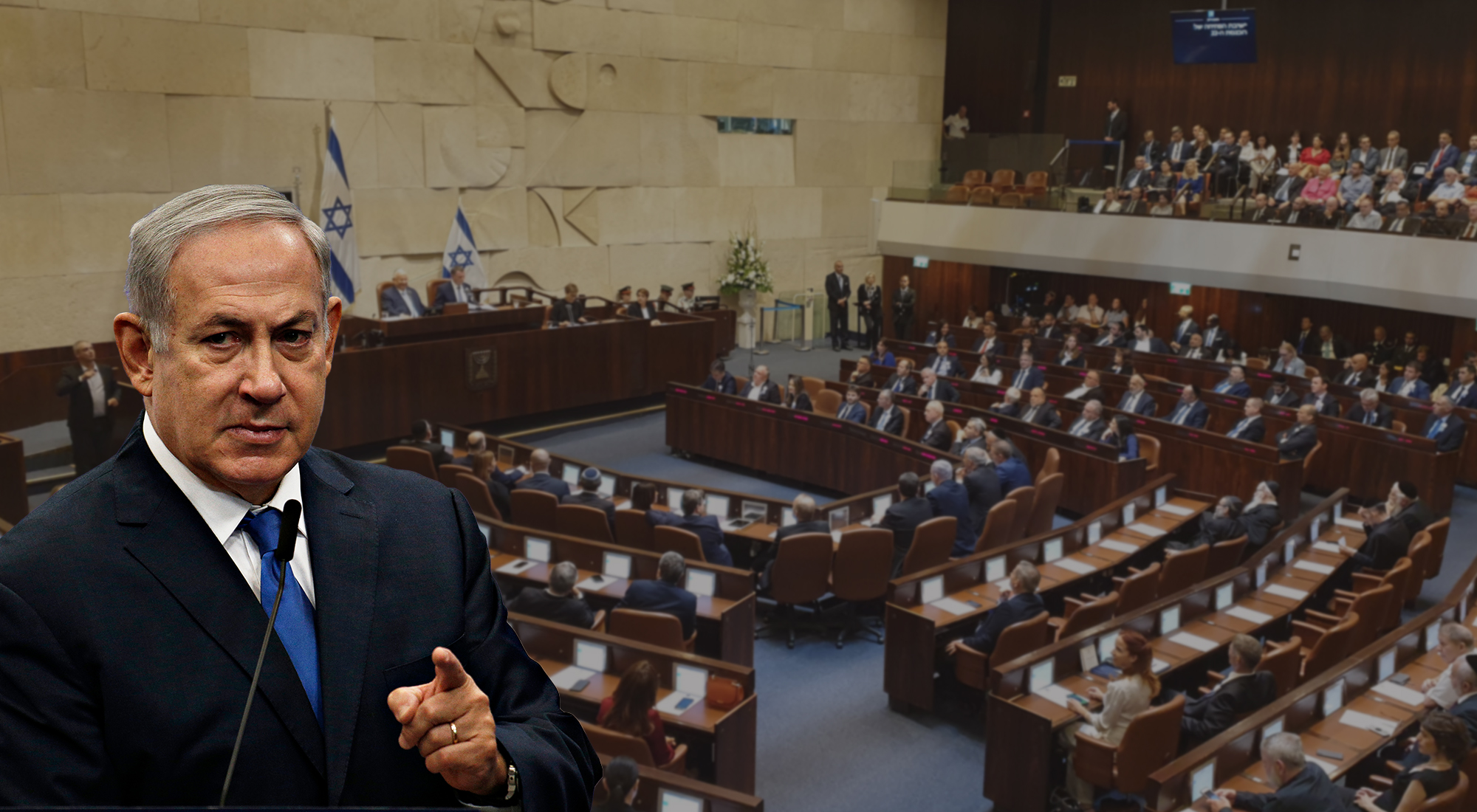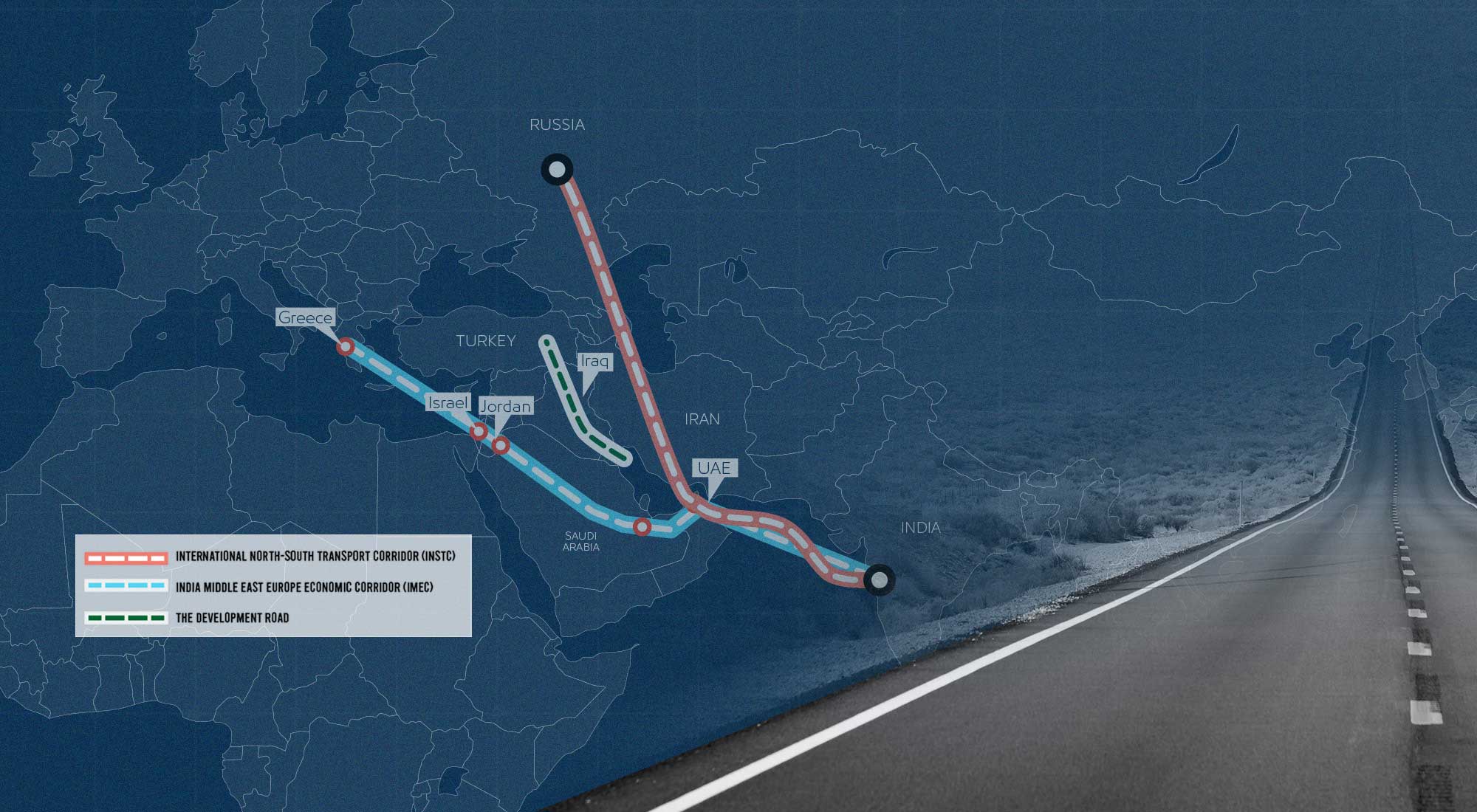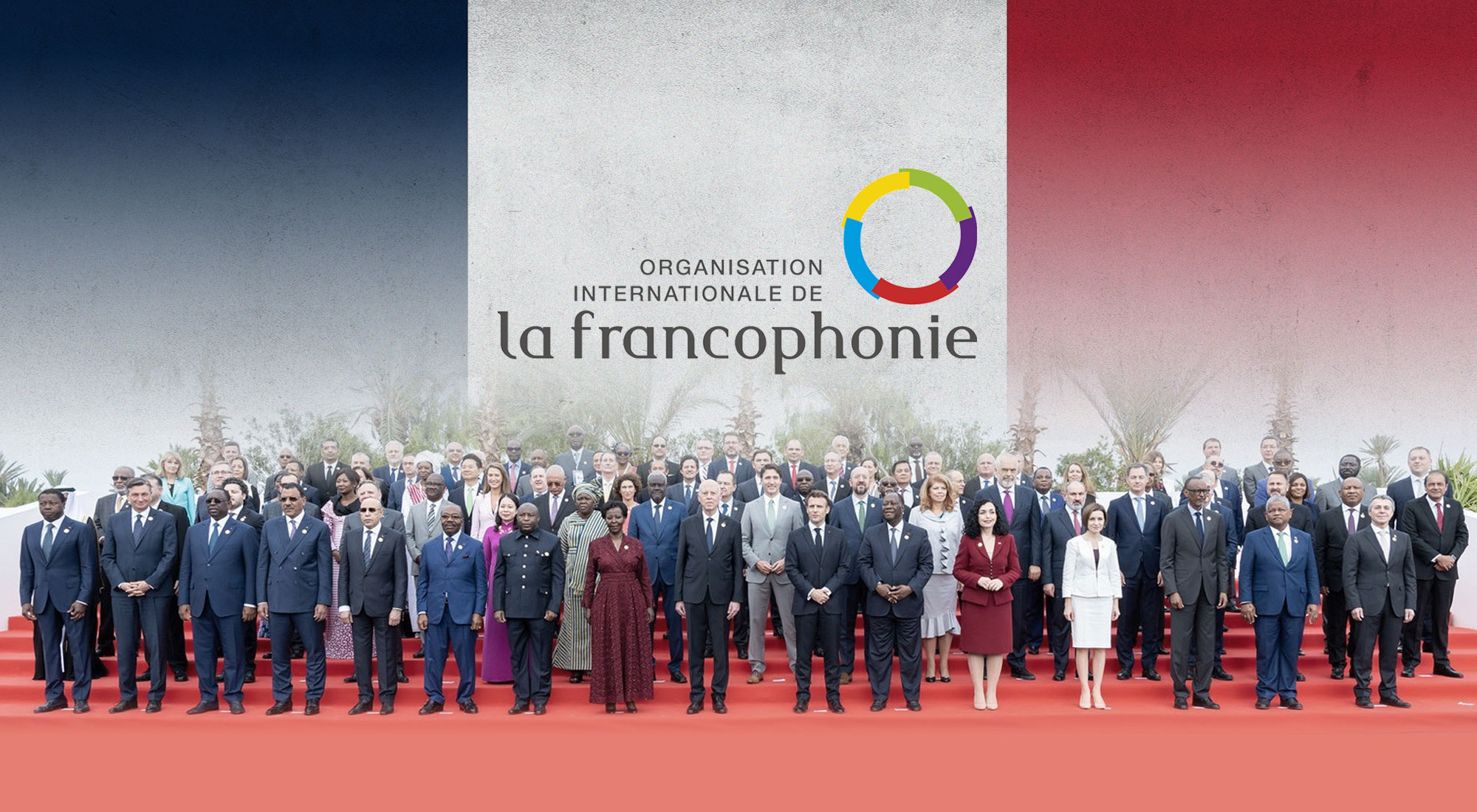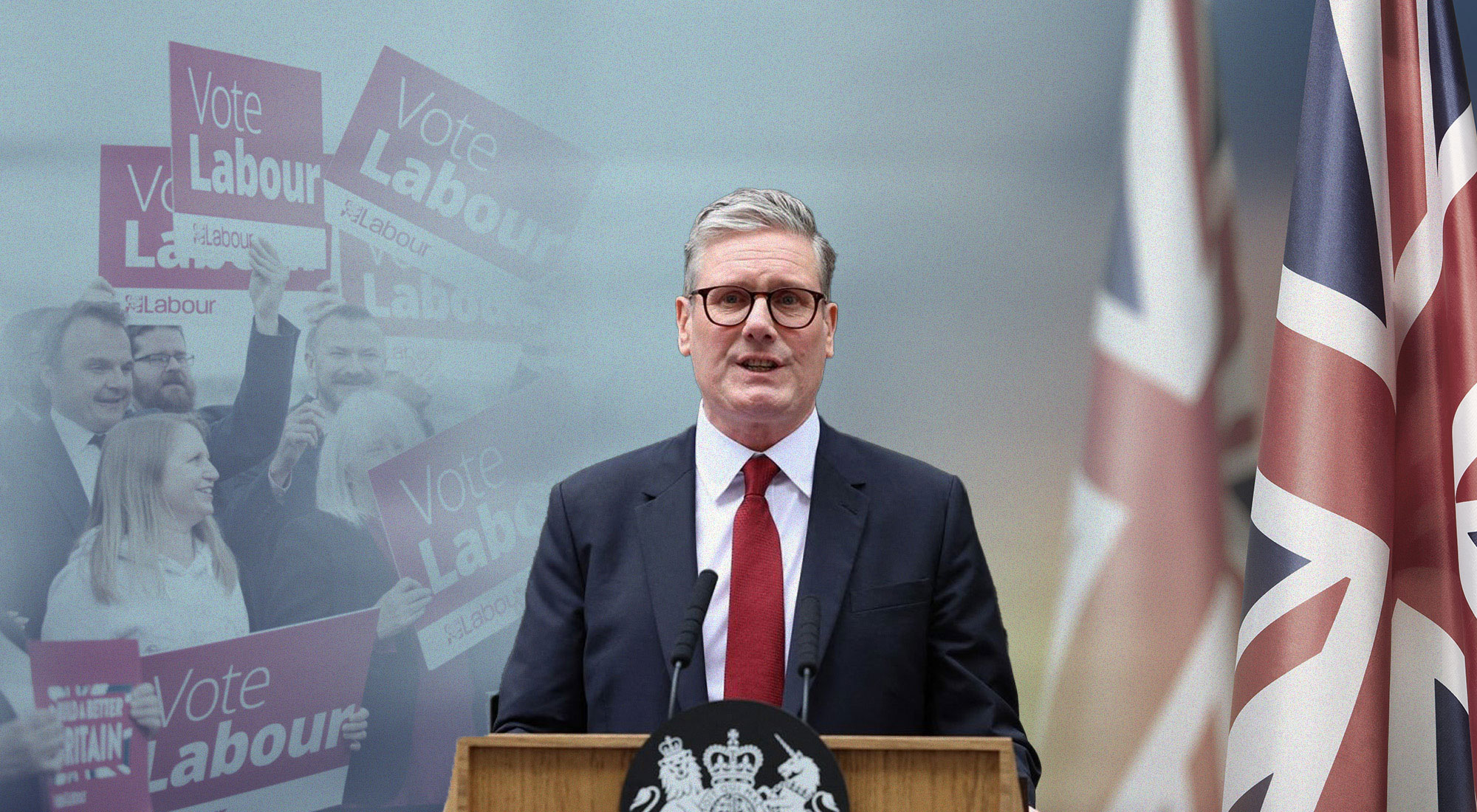When the exit polls were announced by Israeli TV networks at the end of yet another general election – the fifth in the last three and a half years – the unexpected happened. For a change, they predicted some sort of a clear result, something that has not happened in the four previous elections since 2019. By the time all the ballots were counted, it became clear that this was a big victory for the right in all of its shades, and personally for former prime minister Benjamin Netanyahu, who is now is expected to form the next coalition government.[1] Nevertheless, there is an element of distortion in what looks like a straightforward result, as despite the electoral success of the right, the country remains highly fragmented. Unfortunately, the expected composition of the next government suggests deepening schisms within Israeli society, with the Palestinians, and probably with the region and other actors in the international community, too.
What has emerged from this latest episode of Israeli elections is, to begin with, that the spell that Netanyahu has cast on the electorate has not vanished despite his mishandling of the country’s affairs, such as relations with the Palestinians, cost of living, reduction of crime, and his alleged corruption, which is currently being deliberated in a Jerusalem court.[2] Second, and in the long run presenting a greater source of concern, is the rise not only of the right but also the far right Religious Zionism, led by Bezalel Smotrich and Itamar Ben-Gvir, which is ultra-nationalist and religious-messianic. Together with the ultra-Orthodox, they are rather outspoken about their desire to impose their way of life on the rest of the population through the prism of Jewish jurisdiction, the Halacah.[3] Third, relations with the Palestinians, which have already been in a downward spiral for many months, are threatening to turn into full-blown hostilities. Fourth, the right in Israel, and especially Netanyahu, shows more determination and skill at winning elections (a trait which is lacking among the left and the progressives), is much more tuned to the mood of large segments of society (especially exaggerating threat from Palestinian militancy and Iran’s nuclear programme), knows how to manipulate it, and is more skilful in playing the electoral system to its advantage and translating this into seats in the Knesset. Fifth, the next coalition government, which looks very likely to be controlled by the right and the far right, may pose a challenge not only to Israel’s enemies, but even more so to its friends, including the US, the EU, and those who have normalised relations with Israel in recent years.[4]
It is impossible to ignore the Netanyahu factor in Israeli politics. His previous spells in power add up to make him the longest serving prime minister in the country’s history, and he is still hugely influential despite obvious policy failures and personal flaws. His record in government, notwithstanding his political longevity, is at best mixed and at worst paved with failures, inaction, hesitations, and neglect of the very segments in society that vote for him. There is a huge gulf between his extreme rhetoric and his more hesitant, cautious, risk-averse decision-making regarding core policies. To a large extent, for instance, his utter demagoguery about the JCPOA (Joint Comprehensive Plan of Action) nuclear agreement with Iran, which was influential in President Trump’s withdrawal from it, proved to be a folly that has brought Iran closer to nuclear military capability than ever before.[5] Many of his supporters come from low-income families, but throughout his ministerial career, whether as finance minister or prime minister, he has always rewarded the better-off in society, and consequently inequalities increased throughout his times in office.[6] To make things worse, since the police began investigating him for evidence of corruption, Netanyahu’s, judgement, or mainly misjudgement, was mired in his efforts to sabotage the investigation and to prevent an indictment, and after one was issued on three accounts of bribery, fraud and breach of trust, his efforts turned towards intimidating the judges and attempting to halt his trial indefinitely. He and his sycophants are running a smear campaign against the entire justice system, including the police, the general prosecution, and the judiciary, with one aim and one aim alone – to stop his trial.[7] Throughout the investigations in his corruption cases, Netanyahu and his supporters claimed that he could not get a fair trial, that the entire affair was a stitch-up, and that the Attorney General Avichai Mendelblit was under constant attacks and threats. Considering the views expressed by those who are potential partners of the coalition he aims to lead, his wish might well come true, and with it, irreparable damage to the justice system.
In the immediate aftermath of the election, the progressives and the left described the election results as a “disaster” while the Palestinians, as well as others in the region, expressed grave concerns. Only days before the election, Israel had signed a deal with Lebanon to resolve their maritime border dispute, a deal that interim prime minister Yair Lapid and his defence minister Benny Gantz hailed as historic, asserting with much justification that the deal would strengthen their country’s security, inject billions into its economy, and help ensure the stability of the country’s northern border.[8] Netanyahu, on the other hand, irresponsibly, in order to score some cheap points at the expense of national interest on the eve of a crucial election, claimed with not a shred of evidence that “this is not a historic deal, this is a historic surrender” and “a liquidation sale by Lapid,” one that he would reverse should he win the election.[9] And now that he has won, the question is: Was that outburst just another of his empty rhetorical gestures because it suited him at the time, or does he actually intend to carry out his threat? He most likely knew from the outset that this was as good and useful an agreement as possible, one whose benefits outweigh its risks. Crucially, the cost of withdrawing from an agreement brokered by Israel’s main ally, the United States, would be both foolish and damaging. Yet, to have to deal with a government that has strong bellicose elements and is led by a populist prime minister, must ring alarm bells in capitals across the region and beyond.
A special worry would be the influence of the Religious Zionism party in government on relations with the Palestinians. Both leaders of the two factions that comprise this party are settlers from two of the most ideologically extreme and uncompromising illegal settlements and among the 600,000 settlers who now live in the occupied West Bank and East Jerusalem. Itamar Ben Gvir, one of the two, who lives in the most provocative of settlements in the heart of Hebron, has built his career on violent incendiary acts against Palestinians, and in the past was convicted for racist incitement against Arabs and for supporting Kach, a group on the Israeli and U.S. terror blacklists. Ben Gvir is an unashamed admirer of Baruch Goldstein, the terrorist who cold-bloodedly murdered 29 Muslim worshippers at the Ibrahimi Mosque in Hebron. Until rather recently, when he opportunistically tried to soften his image in order to move into electoral politics, Ben Gvir hung a poster of Goldstein in his home. His extreme views led the army to exempt him from mandatory conscription to the IDF (Israeli Defense Forces), a very rare occasion in Israel. Ben Gvir also never misses an opportunity to stoke tensions with the local Palestinian population, as he does in the Sheikh Jarrah district of Jerusalem.[10] Ironically, his initial condition for joining a Netanyahu-led coalition was that he be appointed public security minister, a prospect that sends shivers down the spine, not only of Palestinians from both sides of the Green Line, but also of Jewish Israelis who would not like to see such a sensitive ministry handed over to an outlaw who holds the most polarising of views.[11]
With a right-wing government with such strong far-right elements holding the reins of power, the time could not be worse for relations between Israel and the Palestinians, especially given that the situation in the West Bank is extremely volatile and violent incidents have already claimed many lives this year. Tor Wennesland, the UN’s Special Coordinator for the Middle East Peace Process, warned the 15 members of the Security Council in his recent appearance there late last month that incidents of fatal violence across the West Bank are spiralling and that there are near-daily instances of violence “unfolding against a backdrop of unabated Israeli settlement expansion, evictions of Palestinians and home demolitions.”[12] Furthermore, in his assessment, “2022 is on course to be the deadliest year for Palestinians in the West Bank since the Office for the Coordination of Humanitarian Affairs began systematically tracking Palestinian fatalities in 2005.”[13] Much of the current violence in the West Bank is initiated by settlers, and the next government is likely to include the largest representation of settlers in government since this movement started its activities in the 1970s. Some of these settlers represent the most extreme elements among those who attack innocent Palestinian citizens, and who deliberately make their homes in the heart of Palestinian populations in order to harass and provoke them. One of the aims of this party is to further relax the security forces’ rules of engagement – in other words, to encourage them to be less hesitant on the trigger when they engage with the Palestinian population, without fear of accountability for their actions.
Pressure on the government to annex at least parts of the West Bank is bound to increase, together with demands to expand settlements. Moreover, the demand to pray on Temple Mount (Haram al-Sharif) has become one of the articles of faith for the religious-messianic elements in Religious Zionism, albeit most Rabbis oppose this for halachic reasons. Changing the status quo on one of the most sensitive issues between Israel and the Muslim world is bound to cause friction, and deliberately so, with Muslim worshippers both in the compound and way beyond.[14] Considering that one of the most important political achievements of the Abraham Accords was to prevent the previous Netanyahu government from annexing one fifth of the West Bank, any change in this situation will strain relations between Israel and the countries with which it normalised ties more than two years ago, including the UAE, Bahrain, and Morocco, and also with other countries in the region, especially Jordan.[15] Relations with the Gulf are likely to remain solid with a new Israeli government, as the Iranian nuclear issue continues to be a major focal point of great interest and concern for both. Their economic, scientific, and cultural ties have also been enhanced over the last two years. Nevertheless, cracks might start to show if a government heavily influenced by the far right is stoking tensions with the Palestinians and possibly behaving irresponsibly and hastily in its relations with Iran and its Lebanon proxy Hezbollah.
For the more progressive forces in Israel – and even those who hold softer right-wing views and reject Netanyahu’s nationalist populism and his new religious racist-fundamentalist partners – the outcome of the election is a bitter blow. Last year, they formed a coalition government which, despite its obvious shortcomings, was able to steady the ship and reintroduce better governance and accountability after years of the Netanyahu personality cult and mismanagement of the country’s affairs, including passing a budget bill for the first time in years. This alternative, however, did not convince the electorate that it deserves more time than the near year-and-a-half it was in power, although in terms of vote share the results are much closer than suggested by the number of seats won by each bloc. Israel has an electoral system based on nation-wide proportional representation, and the number of seats that every list receives in the Knesset is proportional to the number of voters who voted for it. The only limitation is the 3.25% qualifying threshold. The lack of unity and strategic thinking within the coalition cost them dearly, and although two parties – which belonged to the “anyone but Bibi” bloc – came close to the electoral threshold, they failed to cross it, resulting in hundreds of thousands of votes going to waste. However, unless these parties find a way to the hearts and minds of new voters, the right will increase its power steadily, as demographically the proportion of religious people is on the rise, and the politics of fear, jingoism, national chauvinism, and divide-and-rule between different communities is cynically exploited by the right to their advantage, with no end in sight.
It is impossible to predict the longevity of the next Israeli coalition government, as despite its clear right-wing character, it will be less than monolithic, and the result of pull-push forces within it, about almost any issue, is likely to make its ride less than smooth. Issues such as the independence of the judiciary, expansion of settlements, annexation of some parts of the West Bank, imposition of religious laws, and allocation of budgets to suit the needs of the coalition and its partners are bound to strain relations in the next government. For now, the electorate has had their say, but there is a genuine and lingering fear that this time those who came to power through the democratic process are those who would like to weaken it and subordinate its institutions to their will.
References
[1] Luke Tress, “What Happens Next: Netanyahu Expected to be Tasked with Forming Government Next Week,” Times of Israel, November 3, 2022, http://bitly.ws/wpYo.
[2] Nehemia Shtrasler, “The Cost of Living Is Not the Story,” Haaretz, September 7, 2022, http://bitly.ws/wpYB.
[3] Yitz Greenberg, “Smotrich, Ben-Gvir Are Damaging Israel’s Jewish Character – Opinion,” Jerusalem Post, October 20, 2022, http://bitly.ws/wpYS.
[4] Suleiman Al-Khalidi, “Analysis: Arabs View Revived Netanyahu with Concern but as Balance Against Iran,” Reuters, November 2, 2022, http://bitly.ws/wpZj.
[5] Michael Horovitz, “Netanyahu: Trump Said I Don’t Want Peace, in a ‘Houston, We Are the Problem!’ Moment,” Times of Israel, October 15, 2022, http://bitly.ws/wpZH.
[6] Dany Bahar and Zvi Eckstein, “Israeli Voters Don’t Care about the Economy. They Should,” Foreign Policy, September 12, 2019, http://bitly.ws/wpZV.
[7] Gidi Weitz, “Netanyahu Promises He ‘Didn’t Come to Destroy,’ but Will He Be Able to Control Himself?” Haaretz, November 6, 2022, http://bitly.ws/wq2e.
[8] Lahav Harkov and Eliav Breuer, “Lapid: Lebanon Agreement Staves Off War with Hezbollah,” Jersualem Post, October 12, 2022, http://bitly.ws/wq2x.
[9] “Approve the Israel-Lebanon Maritime Deal,” Haaretz, October 12, 2022, http://bitly.ws/wq2L.
[10] TOI Staff and Emanuel Fabian, “Police Chief Says He’ll Work with Ben Gvir, Whom He Reportedly Blamed for 2021 Riots,” Times of Israel, November 8, 2022, http://bitly.ws/wq3b.
[11] Laura Kelley and Jared Gans, “Five Ways Netanyahu’s Return Could Shake Up Israel and the World,” The Hill, November 3, 2022, http://bitly.ws/wq3t.
[12] United Nations, “Tor Wennesland (UNSCO) on the Situation in the Middle East – Security Council, 9174th meeting,” UN Web TV, October 28, 2022, http://bitly.ws/wq3C.
[13] Ibid.
[14] “Jordan Warns New Israeli Govt over Temple Mount Status Quo,” i24 News, November 7, 2022, http://bitly.ws/wq3V.
[15] Paul Scham, “Israel’s Election Produces a Clear Winner — and a Lurch Further to the Right,” Middle East Institute, November 3, 2022, http://bitly.ws/wq4t.








